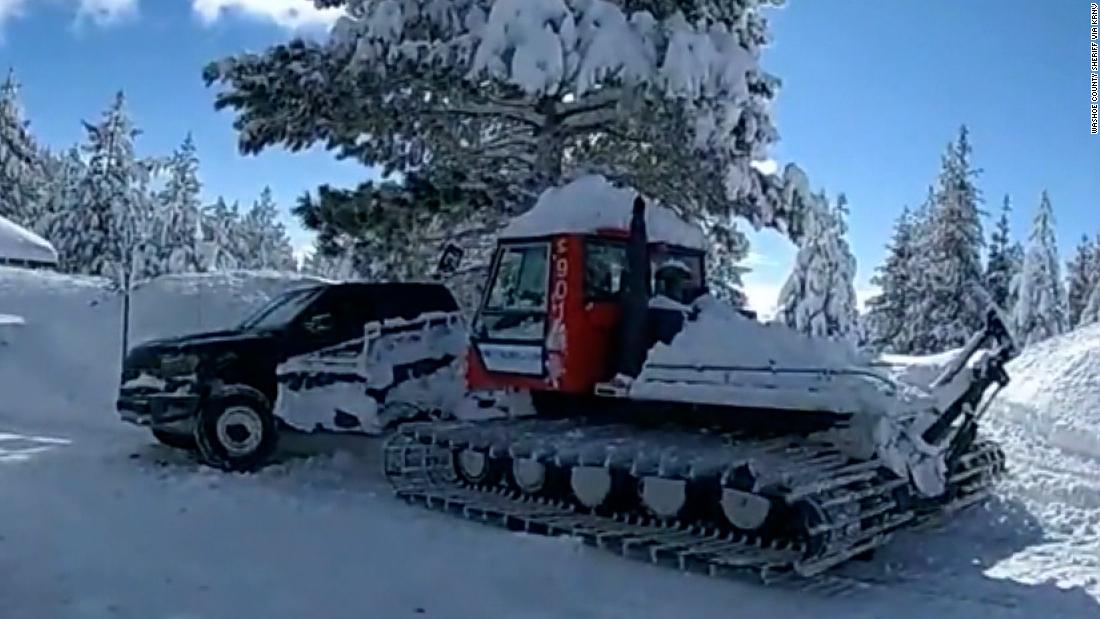THE remains of a Brit researcher who died in Antarctica have been discovered nearly six decades after a tragic accident.
Dennis “Tink” Bell, at the time 25, fell into a crevasse during an Antarctic mission – leaving his devastated family unable to repatriate his body.
British Antarctic Monument TrustDennis Bell, known as ‘Tink’, lost his life on July 26, 1959 while working for what would later become the British Antarctic Survey[/caption]
British Antarctic Monument TrustDennis Bell (left) died on an expedition while he was with his pal Jeff Stokes (right) – Jeff died five weeks before hearing that Dennis’ remains were found[/caption]
PAHandout photo issued by British Antarctic Survey shows in 1959 the Admiralty Bay Base on King George Island, where Dennis worked[/caption]
Dennis’s body was never recovered until January 29 – when a team of Polish researchers from the Henryk Arctowski Polish Antarctic Station stumbled upon bones later confirmed to be his.
His brother, David Bell, told the BBC: “I had long given up on finding my brother. It is just remarkable, astonishing. I can’t get over it.”
Born in 1934, Dennis worked with the RAF and trained as a meteorologist before joining the Falkland Islands Dependencies Survey – later renamed the British Antarctic Survey.
In 1958, he began a two-year posting at the UK base in Admiralty Bay, Antarctica.
His main role was to send up weather balloons and radio the data back to the UK every three hours – work that meant firing up a generator in brutal sub-zero conditions.
The base sat on King George Island – around 75 miles off the northern tip of the Antarctic Peninsula.
Archivist Ieuan Hopkins from the British Antarctic Survey unearthed detailed reports describing work on the “ridiculously isolated” island.
One report described Dennis as “cheerful and industrious, with a mischievous sense of humour and fondness for practical jokes”.
He was said to have loved the husky dogs that pulled sledges around the island and was known as the hut’s best cook – often managing the food store through the long winter when no supplies could get in.
The fatal accident happened just weeks after his 25th birthday, while Dennis was surveying King George Island to help map the terrain.
On July 26 1959 – deep in the Antarctic winter – Dennis and his colleague and pal Jeff Stokes had climbed and surveyed a glacier.
Dennis was encouraging the weary dogs but wasn’t wearing his skis when he suddenly vanished into a crevasse, according to British Antarctic Survey accounts.
Jeff shouted down to him and Dennis was able to call back, grabbing hold of a rope lowered in a rescue attempt.
The dogs pulled at the rope, hauling Dennis – who had attached it to his belt – up towards the edge of the hole.
PAHandout photo issued by British Antarctic Survey shows Dennis Bell (left) with his colleagues and the dogs that helped them work in Antarctica in 1959[/caption]
British Antarctic Monument TrustDennis Bell (left) had a ‘mischievous sense of humour’, as seen by the picture in which he is re-enacting an advert on the snow[/caption]
But tragically, the belt broke and Dennis fell back into the crevasse.
When Jeff called out again, Dennis didn’t reply.
David Bell recalled how, in July 1959, a telegram boy knocked on the door of the Bells’ family home in Harrow, London to deliver the devastating news of Dennis’ death.
He said two men from Dennis’s base later visited the family and brought a sheepskin as a gesture of sympathy.
“But there was no conclusion. There was no service; there was no anything. Just Dennis gone,” David says.
David described feeling overwhelmed by the news and expressed his gratitude to the Polish researchers who found his remains.
“I’m just sad my parents never got to see this day,” he said.
David, who lives in Australia, plans to visit England with his sister Valerie so they can lay their beloved brother to rest.
“It’s wonderful; I’m going to meet my brother. You might say we shouldn’t be thrilled, but we are,” David said.
“He’s been found – he’s come home now.”
Professor Dame Jane Francis, Director of the British Antarctic Survey, paid tribute to Dennis: “Dennis was one of the many brave personnel who contributed to the early science and exploration of Antarctica under extraordinarily harsh conditions.
“Even though he was lost in 1959, his memory lived on among colleagues and in the legacy of polar research.”
Since 1944, 29 people have died working in the British Antarctic Territory on scientific missions, according to the British Antarctic Monument Trust.
Among them were Alan Sharman and Russell Thompson, who also died in 1959.
GettyAdelie penguins walking on a frozen pond at the Polish research station Henryk Arctowsk in Antarctica[/caption] Published: [#item_custom_pubDate]















































































































